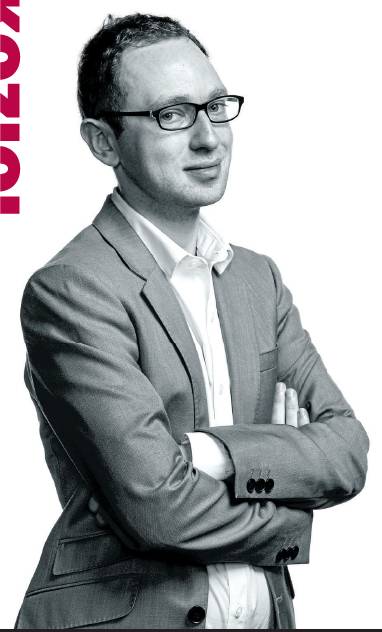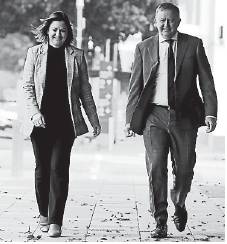Crisis leaves oppositions with nothing much to say
MICHAEL KOZIOL
Labor has seemed to shrink before our very eyes as the pandemic focuses attention on the people making the decisions.
It’s never a good time to be in opposition. It’s particularly bad in the middle of an extreme global crisis when everyone’s attention locks on to the government and it’s near impossible for anybody else to get a word in. Last week, for example, Labor leader Anthony Albanese should have been getting ready to deliver his first budget-in-reply speech – an opportunity to drive some serious stakes into the ground in preparation for an election that could come as soon as August next year. Instead, he’s getting ready for a byelection in a very marginal seat that could very easily become the first byelection since 1920 in which the government has won a seat off the opposition.
Had that happened two years ago, when the Super Saturday byelections raised the real prospect of the Turnbull government winning Longman or Braddon from the Bill Shorten-led opposition, it’s likely it would have changed history. Albanese was ready to strike against Shorten, and Malcolm Turnbull would have been a Liberal hero rather than a victim.
There’s no real suggestion Albanese’s leadership will be in trouble if Labor loses Eden-Monaro, although it was amusing to see some low-level party operatives (mainly from Victoria) messaging me, suggesting rumblings against Albo will heat up if the results are bad.
Bega mayor Kristy McBain, Albanese’s pick for the seat, insisted the contest would be strictly local when she fronted the media with Albo at Parliament House on Friday. She is a strong candidate but will face formidable opponents, with NSW Deputy Premier John Barilaro spending the weekend deciding whether to flick the switch to federal and run.
At the very least, the byelection is a reminder the Australian Labor Party exists. The opposition has seemed to shrink before our very eyes in this pandemic, which is kind of inevitable in a crisis, with the national cabinet calling the shots and the major state premiers, Daniel Andrews and Gladys Berejiklian, acting as a de facto opposition on thorny issues at times.
Albanese made it clear from day one he would not seek to ‘‘play politics’’ with the pandemic, and would support whatever he saw as good policy while constructively criticising any bad policies.
In the party, this strategy is broadly supported because it’s believed to be what voters want, albeit with the caveat that it’s ‘‘never going to win you an election’’.
As one senior figure said: ‘‘We would get the shit kicked out of us if we ran press conferences every day for pure political attacks on the government.’’
Labor has limited its critiques to specific grievances: the government’s refusal to bail out Virgin, the failure of the JobKeeper payment to cover 1.1 million casual workers, and confusing messaging about schools.
Education spokesman Tanya Plibersek largely sat out the debate over schools, but weighed in last week when the government announced it would ‘‘incentivise’’ private schools to get back into the classroom by bringing forward $3 billion in funding.
Behind the scenes, Labor has established processes to start thrashing out policy, including a fortnightly caucus teleconference.
Some MPs say they have found it a lot easier to think deeply about policy without the distraction of the Canberra circus.
One difficulty the Labor Party faces as a result of the pandemic is it will likely have to go to the next election with policies to roll back welfare and entitlements, just like the Coalition.
Its finance spokeswoman, Katy Gallagher, said on Thursday that the doubling of the JobSeeker payment (nee Newstart) was ‘‘probably unrealistic’’ in the long term and it would have to be reduced. It is a difficult space for a centre-left party to be in, although Kevin Rudd demonstrated in 2007 that economic conservatism and fiscal responsibility can play well for Labor with the right framing.
Another pitfall is that when oppositions are neglected, their pleas for attention can get weird and desperate. Witness the Victorian Liberals’ sad posturing over Premier Andrews’ temporary ban on golf, and worse still their embarrassing, hypocritical, News Corp-driven witchhunt of the deputy health chief for her tweet about Captain Cook.
In NSW, a Labor opposition that was humiliating itself trying to condemn the government for building stuff believes it has finally won a trick with the Ruby Princess. It went to Herculean efforts to keep the story running. Indeed, the only televised interview with a Ruby Princess crew member was an interview conducted by Labor leader Jodi McKay (a former TV journalist) with the ship’s pianist that appeared on her Facebook page and was aired by Nine News.
Despite the debacle, Premier Berejiklian’s approval rating shot up, along with that of all the other premiers’ in a Newspoll published last week. But compared with the rave reviews of Andrews and West Australian Premier Mark McGowan, far fewer people thought Berejiklian was handling the virus crisis ‘‘very well’’, opting for a more lukewarm endorsement.
Despite its best efforts to pin the Ruby Princess debacle on Home Affairs Minister Peter Dutton and Border Force, federal Labor hasn’t been able to make hay of a clear mistake like its NSW counterpart. Instead, Kristina Keneally has fired off bizarre tweets about former US president Ronald Reagan and is floating an idea about cutting back on immigration once the pandemic subsides.
If Labor had an identity crisis before COVID-19 – and I think it’s fairly safe to say it did – there’s no doubt it will have one after. But the good news for oppositions everywhere is that the caravan will move on and they will be part of the conversation again.
They just need to figure out what to say.

